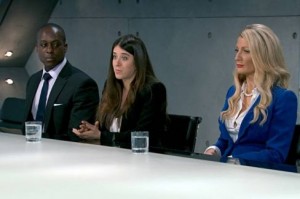 2014’s top ten most talked about TV moments. Major UK analysis of the most talked about TV moments on social media reveals:
2014’s top ten most talked about TV moments. Major UK analysis of the most talked about TV moments on social media reveals:
- Shock, surprise, humour and anger drive second screen conversations, as well as delight in others’ misfortunes
- Emotional intensity and complexity is what compels viewers to share
- Social media acts as the barometer of the nation’s feelings
- Reality TV dominates the top ten but the top two emotional moments involve ‘traditional’, high quality British drama and cinematic-quality TV
- Positive feelings were most likely to be shared – “love” the most tweeted emotional word, followed by good and happy
- Hate was the fourth most popular emotional tag but at a ratio of 1:6 in proportion to happy.
- New, innovative analysis out today has identified 2014’s most emotionally resonant TV moments. The analysis, which involved close monitoring of over a billion Twitter conversations, was carried out by content strategy agency Telegraph Hill. The agency scrutinized Twitter conversations to identify specific moments within broadcasts that had real emotional impact and prompted viewers to share their feelings on social media. This was then subjected to further psychological analysis by looking at the primary human emotions associated with the “top moments”
The analysis reveals huge peaks of emotional outpouring when hundreds of thousands of TV fans unite around dramatic moments. These spikes of activity show people at their most emotionally available and are fast becoming an important touch point for brands who want to create deeper connections with viewers.
We’ve researched 2014’s Top 10 most talked about TV moments. Find out what they are in this article by @TheDrum: http://t.co/zRQOp9mjIE
— Telegraph Hill (@TelegraphHillHQ) December 12, 2014
The most shared TV moments were:
1) Sherlock returns in “The Empty Hearse”. Two years after his apparent suicide, Sherlock Homes returns to save London from a terrorist threat. Sherlock’s resurrection was the most discussed TV moment in 2014 with over 639,000 tweets about his return. Viewers expressed excitement and surprise about his return.
2) Oberyn’s death in Game of Thrones was shocking and grotesque and viewers turned to twitter to express their horror and sadness with over 404,000 tweets about the death.
3) Cheryl Cole’s return to the X Factor panel three years after being fired. 372,000 twitter conversations expressed happiness that the nation’s favourite Geordie was back on our screens and judging pop hopefuls once more. Cheryl’s return received the highest number of “happy” tweets (conversely she also received the highest number of “hate” tweets but at a ratio of 6:1 in favour of happy)
4) Gemma Collins from TOWIE’s anxiety when faced with parachuting into the jungle in I’m a Celebrity Get Me Out of Here was the fourth most emotionally resonant TV moment with 336,000 tweets recorded mostly expressing a malicious pleasure in her misfortune.
5) The opening of the 13th series of Celebrity Big Brother with contestants entering the house handcuffed together. 326,000 tweets occurred reporting amusement and entertainment value about the chaining together of the unlikely couples such as Jim Davidson and Linda Nolan and Dappy and Liz Jones.
6) Collabro’s first audition in Britain’s Got Talent surprised and enthralled viewers with musical theatre; the boy band’s rendition of Stars from Les Miserables led to 215,000 twitter conversations.
7) ‘Bin-gate’ in Great British Bake Off, where Ian Watters dumped his Baked Alaska in the bin in front of shocked presenters Mel and Sue. Over 180,000 tweets expressed shock and anger over ‘Bin-gate’.
8) Peter Capaldi as the new Doctor Who – a defining moment for all fans of the well-loved science fiction TV series now over half a century old. Over 178,000 tweets commented on the appearance of Peter Capaldi in all his glory as the twelfth Doctor Who in the programme’s history.
9) Alex forgetting he cheated on Binky in Made in Chelsea drove 168,000 tweets with viewers expressing mainly anger
10) The triple firing in The Apprentice, where Lord Sugar got rid of no-hopers Canadian born Steven Ugoalah, hypnotherapist Sarah Dales and business graduate Ella Jade Bitton shocked audiences with 114,000 tweets to express surprise and shock over the multiple firings.
Over a billion tweets were analysed by Telegraph Hill to identify the most emotionally resonant TV moments. Positive feelings were the most likely to be shared with “love” the most tweeted emotional word in the study, followed by “good” and “happy”. The next most popular tag was “hate”, which was only shared at a ratio of 1:6 to happy. The evidence shows that good news is more amenable to sharing and retweeting than negativity. The exceptions to this are  around “hot” emotions such as anger.
around “hot” emotions such as anger.
There were a very high number of angry tags found around The Great British Bake Off, following ‘Bin-gate” where the contestant binned his Baked Alaska. The study was able to identify how Twitter can enable an online form of “emotional contagion”, similar to that seen in crowds at sporting events, and some tweets were retweeted hundreds of times.
“Surprise” is another hot emotion and may be a high motivator for sharing as it is mostly associated with Sherlock’s unexpected return, the highest rated programme by tweets. Surprise was also correlated (not so surprisingly) with I’m A Celebrity Get Me Out Of Here though much of the love on that show was directed towards the hosts Ant and Dec rather than the contestants.
This furthers the evidence that the media-watching population identify with regular TV personalities and form emotional attachments to them (e.g. there were a plethora of Happy Birthday tweets for Ant). Similar identifications can be seen in the high amount of tweets at Sherlock’s return, Oberyn’s death on Game of Thrones and Cole’s return to the X Factor.
 Chris Moon, head of insights & analytics, Telegraph Hill says: “The British stiff upper lip has long gone; we now love sharing our emotions on social media. Viewers don’t want to feel isolated when their hearts beat while watching great TV, they want to feel part of the drama and connected to others who feel the same. These big moments connect us as a nation and have become major events on sofas across the country.”
Chris Moon, head of insights & analytics, Telegraph Hill says: “The British stiff upper lip has long gone; we now love sharing our emotions on social media. Viewers don’t want to feel isolated when their hearts beat while watching great TV, they want to feel part of the drama and connected to others who feel the same. These big moments connect us as a nation and have become major events on sofas across the country.”
Real life, great stories and great British dramas drive mass viewing and fuel conversations on social media. Shock, surprise and humour are the emotions most likely to drive viewers to their ‘second screens’ to comment.
Chris Moon continues; “Programme makers have an opportunity to connect with viewers outside of the traditional TV running time. The TV show experience starts before transmission and finishes long after the closing credits roll. These moments of mass participation are a huge opportunity for brands and broadcasters to reach their audiences when they are highly receptive to messages delivered in the right way.
At Telegraph Hill we understand the science of sharing and know how to make these special moments part of big ideas that deliver real value for broadcasters, programme makers and brands.”
 Psychotherapist Dr Aaron Balick, an expert in the psychodynamics of social networking, says “While Twitter has the reputation for being a nasty place, the word ‘love’ was tweeted six times for every ‘hate’ and ‘good’ five times for every ‘bad.’ Though haters may get most of the attention, most of what was communicated (in this study) was positive.”
Psychotherapist Dr Aaron Balick, an expert in the psychodynamics of social networking, says “While Twitter has the reputation for being a nasty place, the word ‘love’ was tweeted six times for every ‘hate’ and ‘good’ five times for every ‘bad.’ Though haters may get most of the attention, most of what was communicated (in this study) was positive.”
Dr Balick continues ““Hot emotions like anger and surprise are likely to be shared regularly, but so are feelings of warmth and support for well loved characters and individual successes.”
“Like being at a large sporting event, Twitter can encourage crowd behaviour and emotional contagion. This is exemplified in the ‘Bin-gate’ affair on The Great British Bakeoff.”

